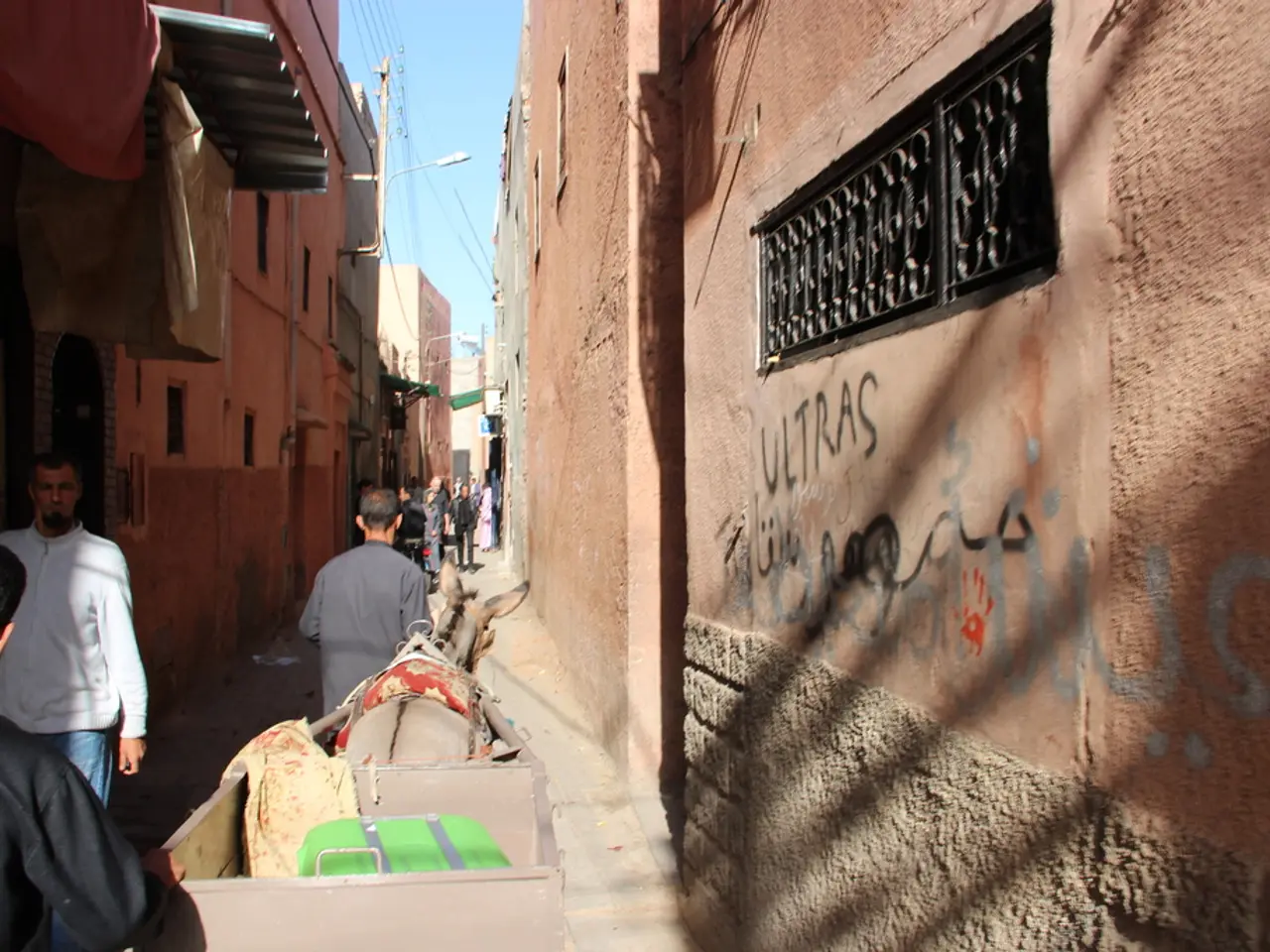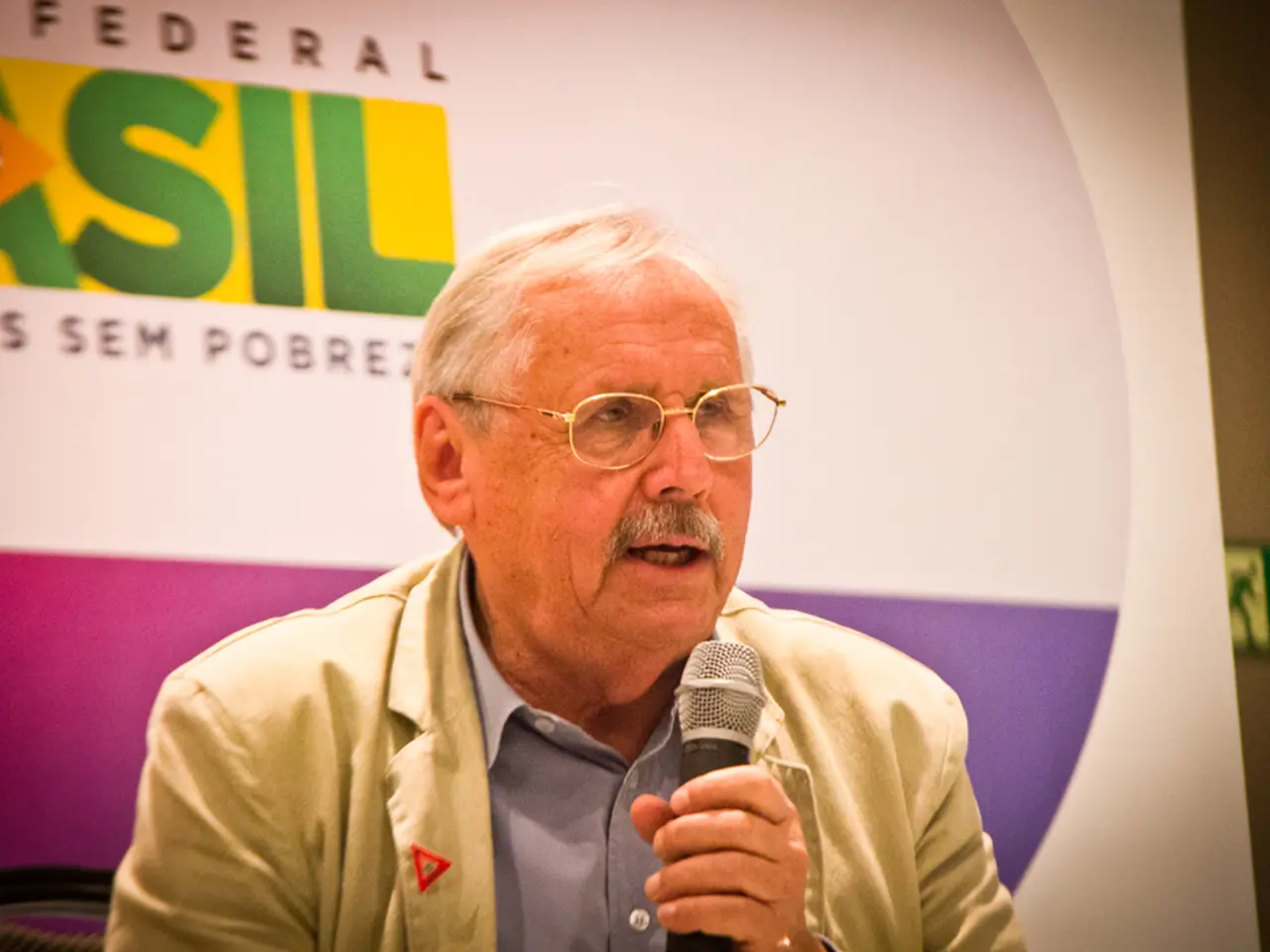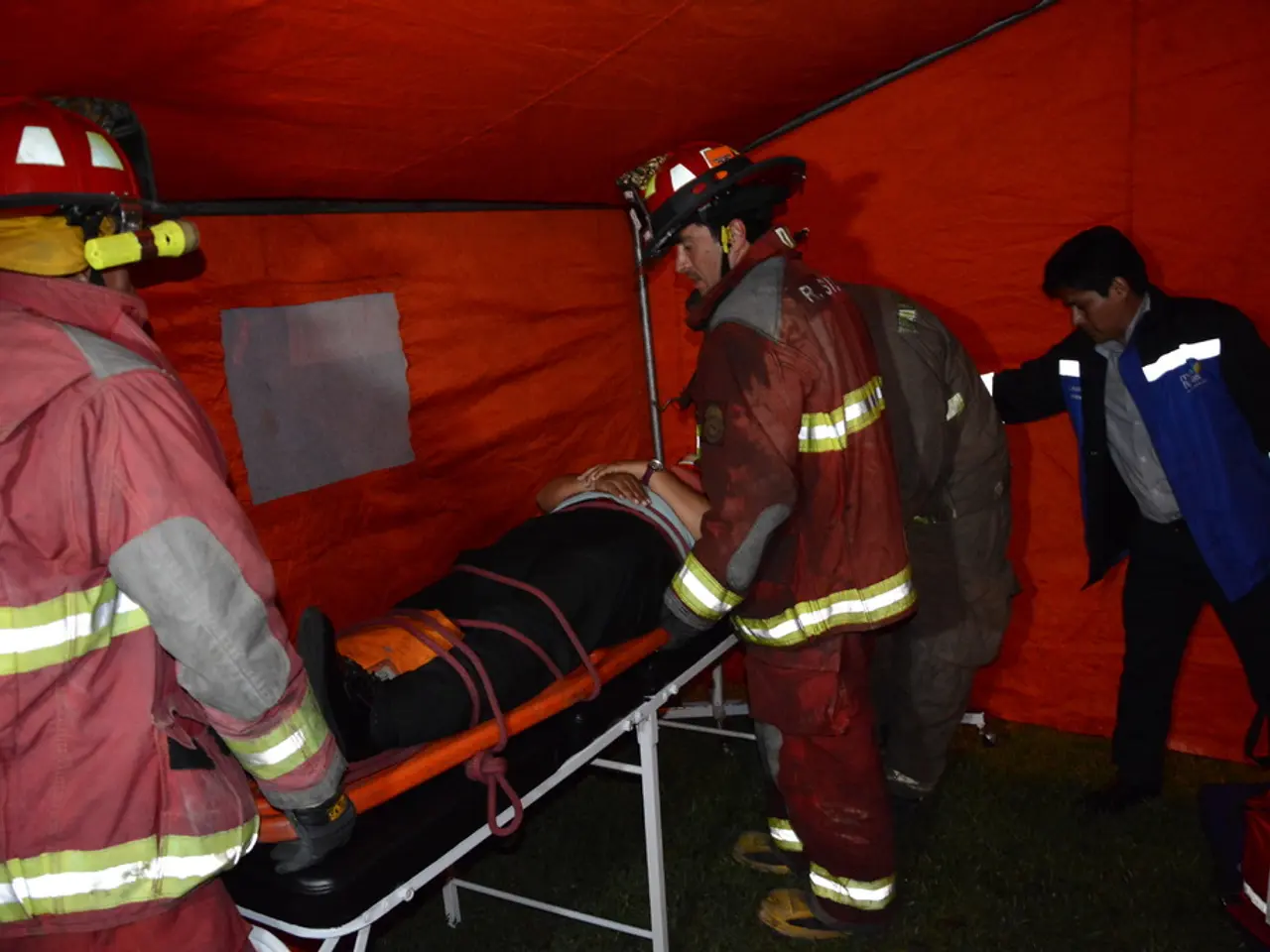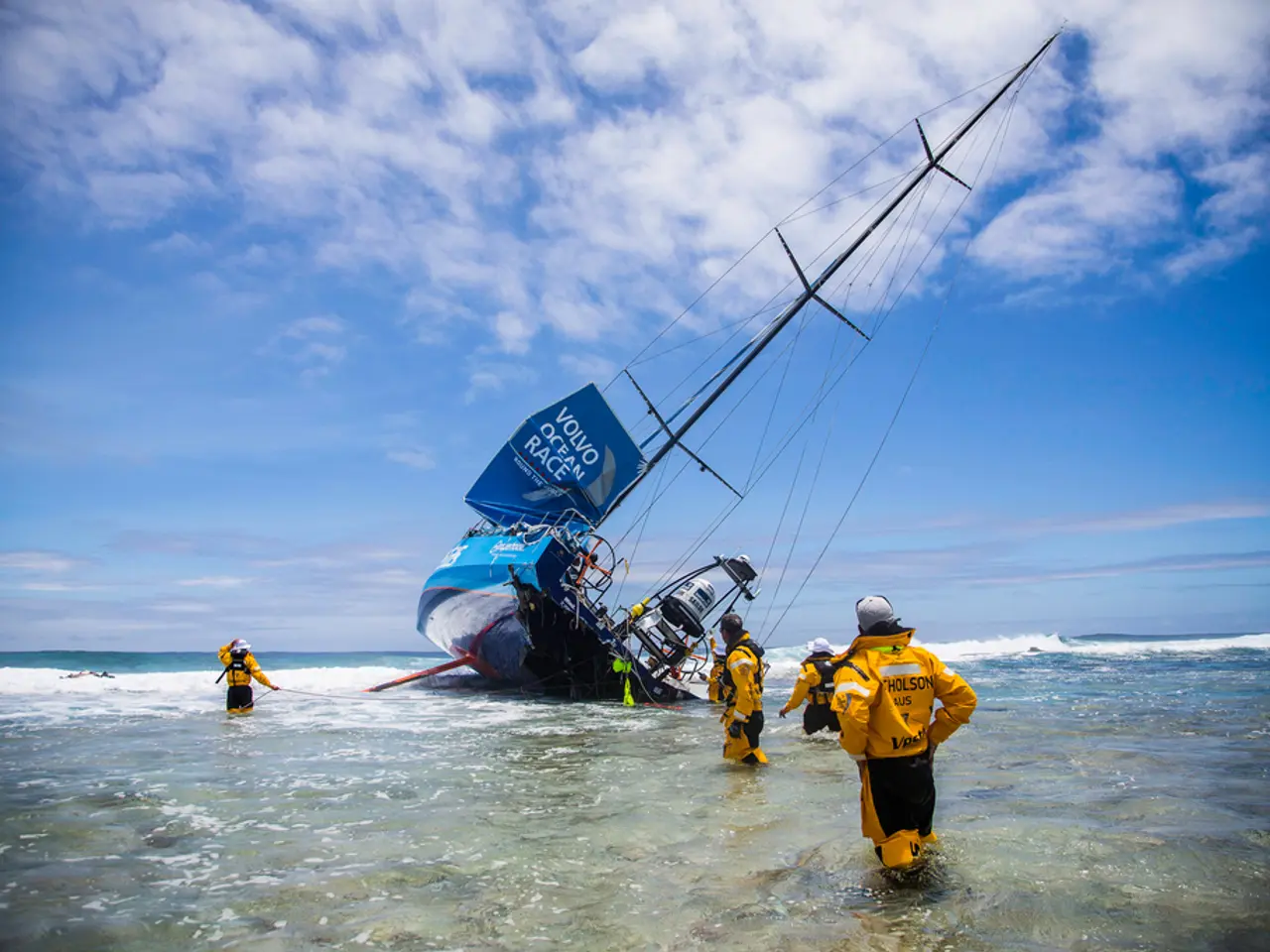During his visit to Israel, Wadephul aims to negotiate additional humanitarian assistance for the Gaza Strip. - Delivering additional humanitarian aid to Gazans becomes the focus point
In the heart of the Middle East, the ongoing crisis in the Gaza Strip continues to pose significant challenges for humanitarian aid efforts.
Germany has reaffirmed its commitment to a "negotiated" two-state solution for the Israeli-Palestinian conflict and emphasized the importance of facilitating humanitarian aid access to Gaza. This comes as multiple international actors, including UN agencies like UNRWA and NGOs such as the International Rescue Committee (IRC), strive to deliver aid in the face of severe challenges.
At a recent UN conference held in Tel Aviv, 15 Western countries, including France and the United Kingdom, jointly launched an appeal in favour of a Palestinian state. The disarmament of the Islamic Hamas was demanded at the conference, a call supported by the Arab League and several Arab countries.
Israel, however, continues to restrict aid deliveries, implementing limited "tactical pauses" and controlling aid distribution through the Gaza Humanitarian Foundation (GHF). This approach, often criticized as insufficient and dangerous by NGOs, has been a point of contention. Canada, aligning with key Western partners, advocates for humanitarian relief but stresses that aid must not empower Hamas, supporting Israel's security concerns while calling for increased aid access.
The recent events in Gaza have been harrowing. On Thursday evening, according to the Hamas Civil Defense, 58 people were killed in a food distribution in the Gaza Strip. The Israeli army stated that warning shots had been fired, but had no information about possible casualties.
Amidst these troubling circumstances, the IRC is pre-positioning supplies outside Gaza to scale up aid once access is restored. They stress that Gaza’s population remains wholly reliant on humanitarian relief amid soaring hunger and collapsing local markets.
NGOs have condemned the Israeli aid airdrop schemes as futile, inefficient, and potentially harmful, highlighting risks like forced displacement and endangering vulnerable populations who struggle to access aid under the current distribution system.
Meanwhile, key players like Germany, Canada, and Portugal have made statements regarding the recognition of the State of Palestine. Palestinian President Mahmoud Abbas welcomed Canada's decision, while Germany sees the recognition of a Palestinian state as the end of a negotiating process.
The UN conference showed "that Israel is increasingly finding itself in a minority position," with US President Donald Trump threatening that a trade agreement between his country and Canada would be "very difficult" due to Canada's announcement to recognize the State of Palestine.
As the situation in Gaza continues to evolve, the international community remains divided, with complex dynamics shaping the delivery of adequate humanitarian aid amidst security concerns, political constraints, and deteriorating humanitarian conditions.
The European Union, alongside other major powers, has also pledged support for the Palestinian Authority's attempts to implement the UN Security Council Resolution in the Gaza Strip, as politics and general news continue to revolve around the ongoing conflict in the region. Despite the challenges, humanitarian organizations such as the International Rescue Committee are escalating their efforts to deliver aid to Gaza, acknowledging the critical need as the population becomes increasingly reliant on humanitarian relief amidst soaring hunger and collapsing local markets.






